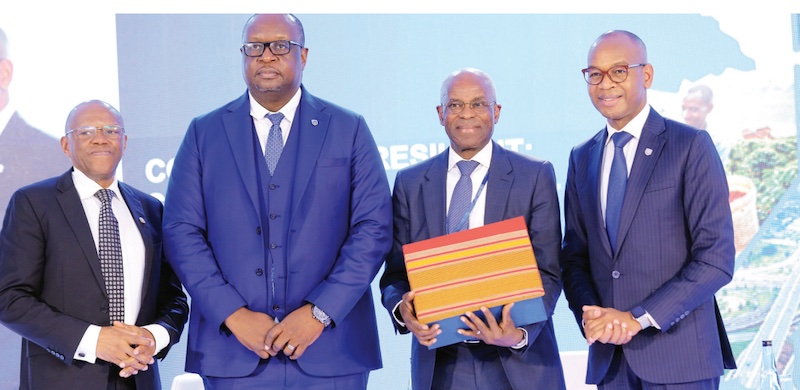
Screenshot
Stanbic Bank Uganda Chief Executive, Mumba Kalifungwa, has called for greater regional collaboration and investment to unlock East Africa’s full economic potential, describing Uganda as “a critical lever in the region’s integration story” and a natural hub for trade and connectivity.
Speaking at the opening of the Stanbic East Africa Business Summit 2025 in Kampala, Kalifungwa said Uganda’s strategic location and ongoing infrastructure investments are redefining its role in the region transforming it from “landlocked to land linked.”
“Uganda’s story is one of resilience, enterprise and ambition,” Kalifungwa said. “We are no longer defined by geography but by connectivity. Through strategic investments in roads, border posts, energy and trade systems, Uganda is transforming into a bridge between markets, a reliable partner in trade, and a dynamic platform for inclusive growth.”
He emphasized that this growing connectivity extends beyond the movement of goods, noting its human and social impact.
“It’s about moving potential enabling women traders to reach new markets, empowering youth- led businesses to scale, and allowing farmers to fetch better prices across borders,” he explained.
As the country’s largest bank and part of Africa’s biggest financial services group, Kalifungwa said Stanbic Bank Uganda sees its role as going beyond financing.
“We are partners in building the infrastructure of growth financing roads, energy and logistics that connect markets, supporting exporters to reach new buyers, empowering SMEs to scale, and creating solutions that make trade and investment flow more easily across borders,” he said.
Kalifungwa reaffirmed Stanbic’s commitment to supporting Ugandan businesses with regional ambitions.
“When you bank with Stanbic in Uganda, you are banking in East Africa,” he said. “Your capital can follow your customers, your products can follow your potential, and your enterprise can follow your ambition wherever in the region it leads.”
Held under the theme “Connected & Resilient: Scaling East Africa’s Regional Advantage,” this year’s summit convened business leaders, policymakers, and investors to explore ways to deepen trade, attract investment, and create shared prosperity across the region.
Okello Oryem, the state minister for Foreign Affairs, underscored the importance of joint investment in infrastructure, technology, and climate-smart solutions, urging stronger public-private collaboration.
“A truly connected East Africa cannot be built by governments alone. The private sector, and especially financial institutions like Stanbic Bank, are central in helping us move from fragmented economies to a unified investment destination,” Oryem said.
He further called for a rethinking of foreign policy to promote economic diplomacy.
“Let foreign policy build bridges, not just treaties. Let it open doors to capital, innovation, and sustainable development,” he added.
Meanwhile, Dr Joshua Oigara, incoming regional chief executive for East Africa at Standard bank group, commended the summit as a powerful demonstration of the region’s collective ambition.
“The East Africa Business Summit is a powerful reflection of our region’s shared ambition to build a connected and competitive economy,” Dr Oigara said.
“At Standard bank, we see our role as enabling this transformation by financing trade, fostering innovation, and supporting enterprises to scale across borders. Through collaboration and investment, we can unlock the full potential of East Africa and drive inclusive, sustainable growth for generations to come.”



